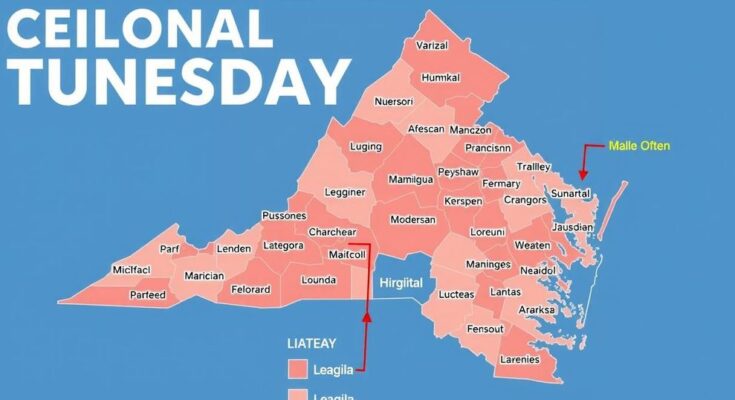On Tuesday, voters in Loudoun County and parts of central Virginia will elect two state senators and a House member ahead of the General Assembly session. Republicans aim to gain control of the state legislature but face challenges in a predominantly blue region. Key candidates represent conflicting views on critical issues such as abortion and education.
On Tuesday, voters in Loudoun County and parts of central Virginia will participate in special elections to select two state senators and a House of Delegates member just prior to the commencement of the General Assembly session. Republicans have the opportunity to potentially gain control of both chambers by flipping two seats in Loudoun, although political analysts deem this unlikely given the solidly Democratic support in Northern Virginia. Similarly, Democrats face challenges in capitalizing on a recently vacated Senate seat in a predominantly Republican area between Richmond and Lynchburg.
Early voting has already been underway, concluding soon before the polls open from 6 a.m. to 7 p.m. on Election Day. In the Loudoun Senate race, incumbent Delegate Kannan Srinivasan is vying for a Senate seat against opponent Tumay Harding. Srinivasan, an immigrant and first Indian individual elected to the House of Delegates, has emphasized legislative achievements in diverse issues while Harding is campaigning against perceived “far-left” policies, notably concerning education and reproductive rights.
For the House seat being left open by Srinivasan, Democrat JJ Singh faces Republican Ram Venkatachalam. Singh, with a focus on economic and social issues, aims to promote measures such as stringent gun control and protection for abortion rights. Conversely, Venkatachalam intends to prioritize economic opportunity and education while steering clear of divisive social topics.
In central Virginia, the contest for the seat vacated by McGuire involves Republican nominee Luther Cifers and Democrat Jack Trammell, both highlighting their local backgrounds and offered solutions such as affordable housing and educational reforms.
The political landscape in Virginia remains dynamic, with these special elections holding substantial implications for governance in the final year of Governor Glenn Youngkin’s term, as Republicans hope to amend their legislative influence amid a predominantly Democratic assembly.
Opposition to the current Democratic control has fueled tensions around various policies, and voter turnout in these elections could yield unexpected results, reflecting the unique character of special elections.
The upcoming special elections are crucial as they will determine the control of the Virginia General Assembly, with significant implications for legislative processes. With a looming General Assembly session, both political parties are keenly aware of the stakes involved, particularly for Republicans who seek to regain a foothold in the Senate and House following a series of Democratic victories. This political situation is characterized not only by party dynamics but also by individual candidates’ positions on pivotal issues such as abortion, education, and public safety. The context of low voter turnout in special elections also suggests potential for surprising outcomes that could shift legislative power.
In summary, the special elections in Loudoun County and central Virginia are set to shape the political landscape as they precede the General Assembly session. With significant stakes for both Democrats and Republicans, particularly concerning control of the legislative body, these elections reflect intense competition and diverging policy platforms among the candidates. The outcome will be vital for term-limited Governor Glenn Youngkin’s agenda and could change the balance of power in Virginia’s governance.
Original Source: www.washingtonpost.com




